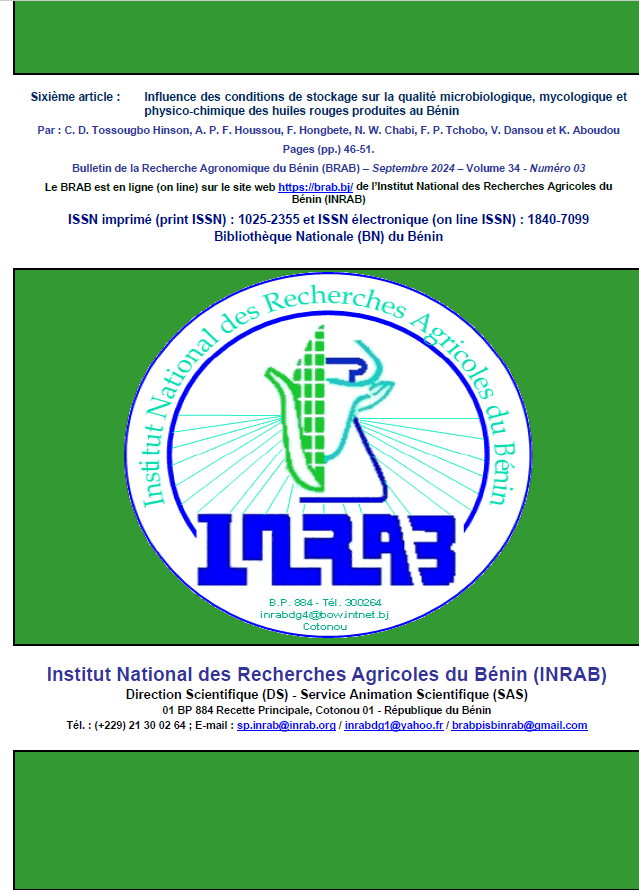Influence of storage conditions on the microbiological, mycological and physicochemical quality of red oils produced in Benin
DOI:
https://doi.org/10.62344/brab.v34i03.218Keywords:
Palm oil, Sanitary Quality, Deterioration, West AfricaAbstract
Palm oil production is an income-generating activity for many producers. In times of abundance, the oil is stored to be sold at a higher price in times of shortage. The influence of storage practices on microbial and physico-chemical changes in palm oil in Benin was assessed. Monitoring was carried out to assess the microbiological, mycological and physico-chemical quality of palm oils during storage. The palm oil stocks of three professional producers were selected and monitored every month for seven months. The oils were stored in 25 L can and 200 L metal drums. The palm oil samples were taken aseptically each month and transported to the laboratory for microbiological analysis, which included mold, fecal coliforms and E. coli, followed by determination of water activity. The results showed a reduction in the mould load of the palm oil during storage. The microbial quanta of fecal coliform and E. coli in the oil remained constant during storage. Concerning water activity (Aw), no significant difference (p > 0.05) was observed between storage structures and during storage time. Storage practices are decisive in preserving the sanitary quality of palm oil.

Published
Issue
Section
License
Copyright (c) 2024 Bulletin de la Recherche Agronomique du Bénin

This work is licensed under a Creative Commons Attribution-ShareAlike 4.0 International License.
Les articles publiés par le Bulletin de la Recherche Agronomique du Bénin sont en libre accès. Ils sont gratuits pour tout le monde, immédiatement téléchargeables dès la publication et distribués sous la licence CC BY-NC-ND (https://creativecommons.org/licenses/by-nc-nd/4.0/).







